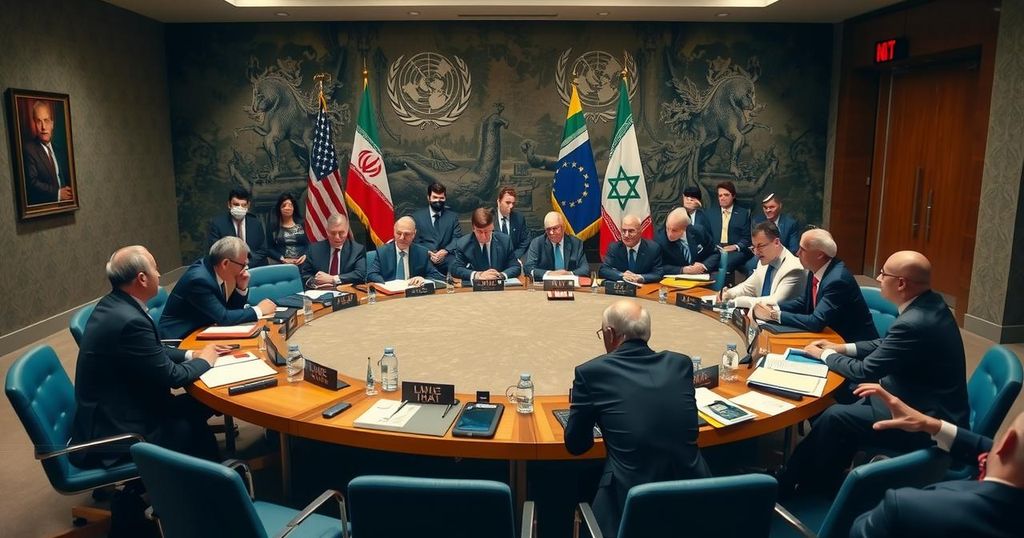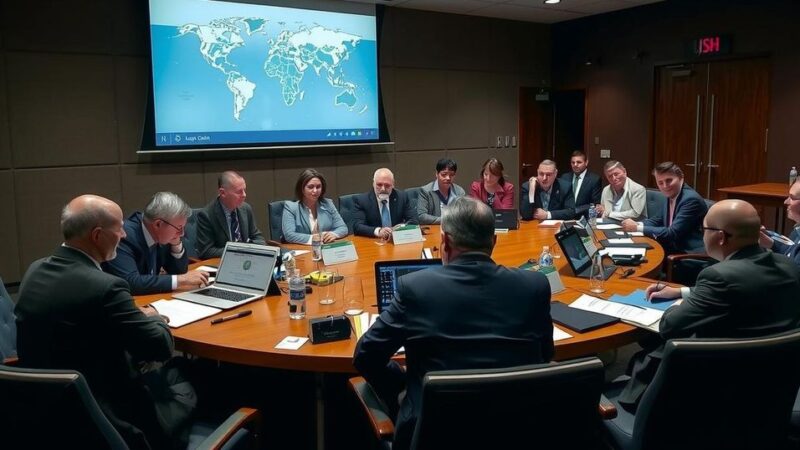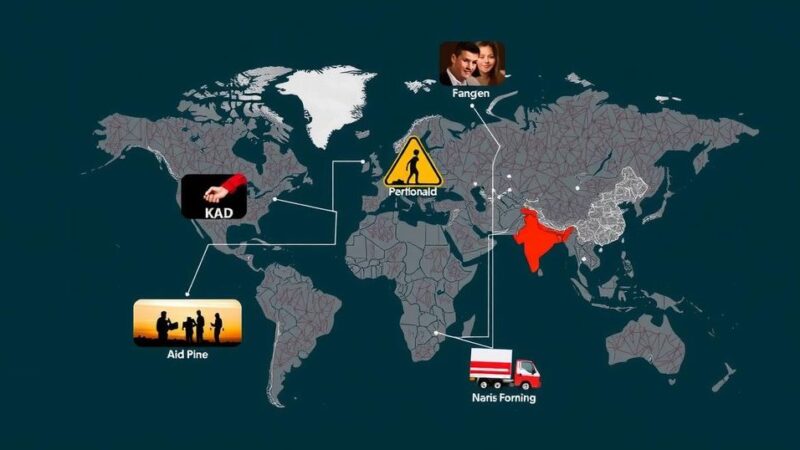The United Nations Security Council will hold an emergency session to discuss Israel’s military strikes against Iran, which have escalated tensions in the Middle East. This follows Iran’s request for the meeting, supported by Algeria, China, and Russia. With ongoing military operations impacting both Israel and Iranian proxies, regional stability remains at risk amidst escalating hostilities and humanitarian issues.
The United Nations Security Council has convened an emergency meeting to address escalating tensions in the Middle East following Israel’s military strikes against Iran. The meeting, scheduled for Monday, was requested by Iran with the backing of Algeria, China, and Russia. In a letter to the 15-member council, Iran’s Foreign Minister Abbas Araqchi condemned Israel’s actions, asserting they pose a significant danger to international peace and exacerbate regional instability. Israel’s aerial assault this past Saturday involved multiple strikes targeting Iranian missile production facilities, which followed Iran’s missile attack on Israel involving approximately 200 ballistic missiles. This engagement has intensified ongoing hostilities involving Israel and Iranian-affiliated militant groups, including Hamas and Hezbollah. Despite the momentous nature of Israel’s strikes, Iran’s Supreme Leader Ayatollah Ali Khamenei cautioned against overreacting, suggesting that the situation should not be either overstated or dismissed. Meanwhile, Israeli Prime Minister Benjamin Netanyahu declared that the strikes had successfully diminished Iran’s military capabilities. In addition to the emergency meeting, Iraq has lodged a complaint with the United Nations, denouncing Israel’s incursion into Iraqi airspace during the airstrikes. An Iraqi government spokesperson has emphasized the violation of national sovereignty. Moreover, Israeli forces have executed further airstrikes in southern Lebanon, resulting in civilian casualties. Concurrently, Egyptian President Abdel-Fattah el-Sissi has proposed a two-day cease-fire in the ongoing conflict between Israel and Hamas, calling for the release of hostages in exchange for a halt in hostilities. This latest initiative, although unaddressed by the involved parties, signals ongoing efforts for reconciliation in a deeply fractured region. In the context of these developments, the violent conflict initiated by Hamas’s attack on Israel on October 7, 2023, which resulted in significant casualties and hostage situations, has escalated. Israel’s responsive military operations in Gaza have reportedly led to the deaths of nearly 43,000 Palestinians, as reported by the territory’s health ministry, a statistic that blurs the lines between combatants and civilians.
The recent conflict in the Middle East, particularly between Israel and Iran, is rooted in decades of geopolitical tension, intertwined with the actions of various militant groups. Following Hamas’s deadly assault on Israel in early October 2023, escalating retaliatory measures have heightened the threat to regional stability, drawing in responses from various state actors. The situation has further underscored the intricacies of Middle Eastern politics, where historical grievances and contemporary military engagements continuously impact diplomatic relations and international peace. The role of external actors, including the United Nations and nations such as Egypt and Qatar, plays a crucial part in mediating conflict and addressing humanitarian crises arising from prolonged violence.
In summary, the emergency meeting of the United Nations Security Council reflects the urgent need to address the heightened tensions following Israel’s military engagements with Iran. The ongoing violence and the accompanying humanitarian crises underline the complexities of the region’s geopolitical landscape. Further diplomatic efforts, such as proposed cease-fires and mediation talks, remain critical to de-escalating conflict and fostering a sustainable peace.
Original Source: www.voanews.com






